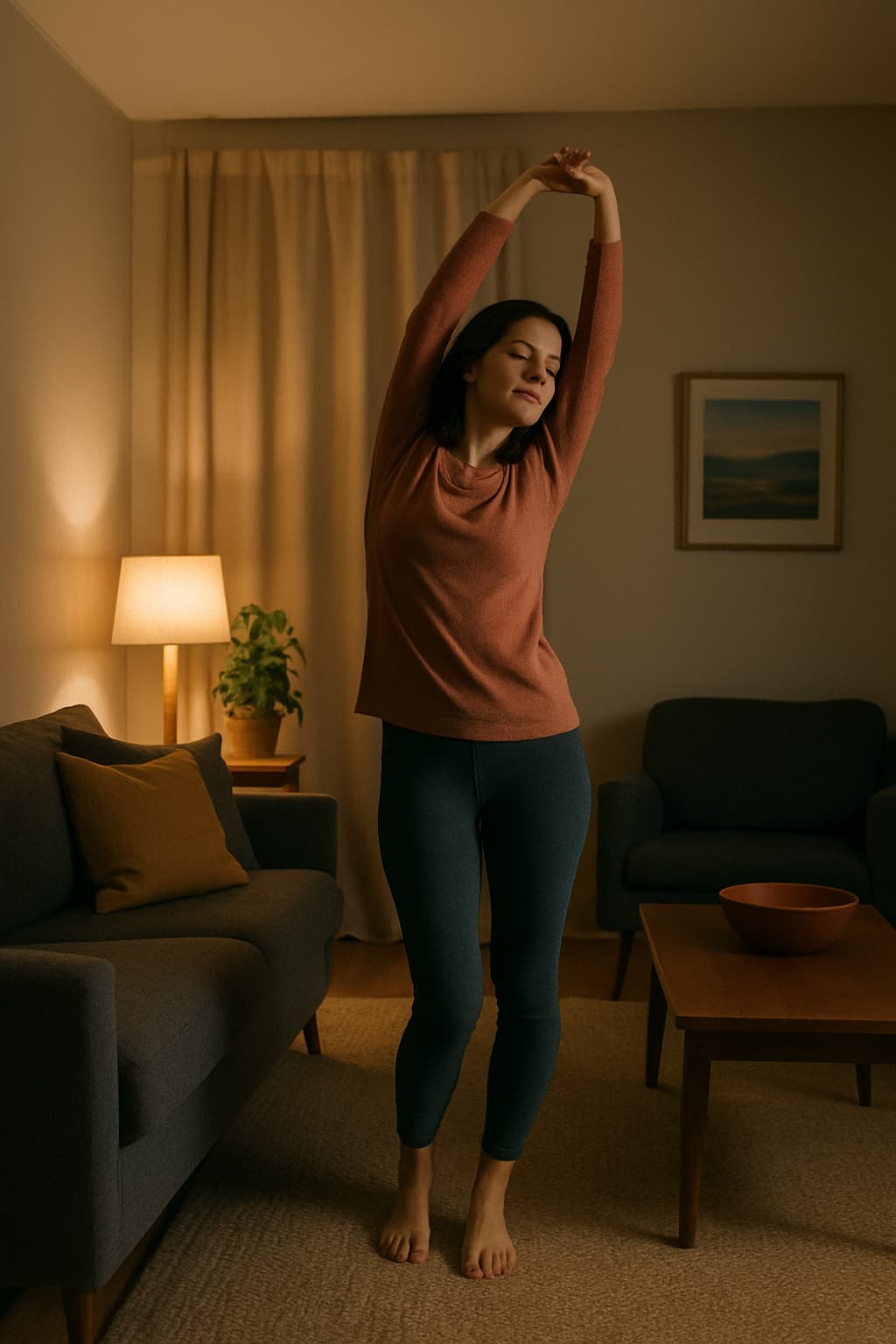Stop the spiral. Build a rhythm that brings calm before Monday.
Introduction
It’s Sunday night.
You glance at the clock and feel your stomach tighten. Maybe it’s the overflowing inbox you’ll face in the morning, or maybe it’s just the quiet dread that sneaks in when the weekend starts to fade.
This feeling has a name: Sunday anxiety (or the "Sunday scaries").
And while it’s incredibly common, it doesn’t have to own your night.
With the right Sunday night ritual, you can gently signal to your body and brain that everything is okay — and take back your peace.
Why Routines Work (and Why You Probably Need One)
Your nervous system loves rhythm.
Predictable, soothing actions lower stress hormones, reduce racing thoughts, and ease emotional transitions (like weekend to work mode).
Without a structure, your brain keeps scanning for danger — and Monday becomes the monster in the room.
“Rituals create micro-environments of control and safety. They’re emotionally stabilizing.”
— Dr. Judson Brewer, Neuroscientist & Anxiety Researcher
For a deeper look at this topic, check out our full guide on Sunday anxiety here.
Step-by-Step: Building Your Own Sunday Night Ritual
This is not about making a 10-step Pinterest board.
This is about choosing 2–4 small actions that soothe, ground, and prepare you — emotionally and practically — for the week ahead.
1. Choose a Wind-Down Time (and Protect It)
Set a “boundary hour” — the moment your weekend officially ends and your reset begins.
Example:
At 7:30 PM, I put my phone on Do Not Disturb and start my Sunday night ritual.
Consistency is more powerful than duration.
2. Reset Your Space — Gently
Clutter = mental noise. You don’t have to deep clean, just reset your environment to feel held.
- Fold a blanket
- Tidy your bedside
- Set your mug out for morning tea
- Light a candle or incense
Your space should whisper: “You’re safe here.”
3. Prep Monday — But Keep It Light
Don’t open your entire calendar or make a 30-point task list. That just reactivates your stress loop.
- Write 3 things you’ll focus on Monday
- Choose your clothes or breakfast
- Close open browser tabs that cause anxiety
You’re not doing Monday. You’re just giving Monday-you a gentle head start.
4. Do One Body-Centered Practice
Rituals aren’t just mental. Your body holds stress — and needs to release it.
Pick one of these, and repeat it weekly:
- Box breathing or equal breathing (5–10 minutes)
- A hot shower with soft music
- Slow stretching or “ragdoll pose”
- Rocking gently in a chair while journaling
If it involves breath, warmth, or movement — it works.
Related: Quick Breathing Exercises to Relieve Stress and Refocus
Bonus: What to Avoid on Sunday Nights
- Doomscrolling (especially news, Reddit, or LinkedIn)
- “Just one more episode”
- Looking at work emails after 6 PM
- Overplanning the week
- Drinking alcohol — it can worsen anxiety
Related: 6 Powerful Daily Habits for Inner Peace and Emotional Relief
Real-Life Example: My Sunday Ritual (Andrew K.)
- 7:30 PM: Lights dimmed, phone in night mode
- 7:40 PM: Clean mug and teabag set out for morning
- 8:00 PM: Journal one sentence + stretch on floor
- 8:15 PM: 5 minutes of equal breathing
- 8:30 PM: Quiet — no screens, no noise. Just being still.
This doesn’t fix every hard Sunday. But 9 out of 10 times, I go to bed feeling okay. That’s a win.
Mini FAQ
Q: I’m bad at routines — how do I start?
A: Start with one thing. Even brushing your teeth while playing the same calming song can be a ritual.
Q: What if I miss a week or two?
A: You’re human. Rituals work because they’re forgiving. Just begin again.
Conclusion
You don’t have to eliminate Sunday anxiety — just interrupt its rhythm.
A small, honest Sunday night ritual can feel like putting your arm around your own shoulders and saying: “We’ve got this.”
Start small. Repeat often. Let calm become your default.

